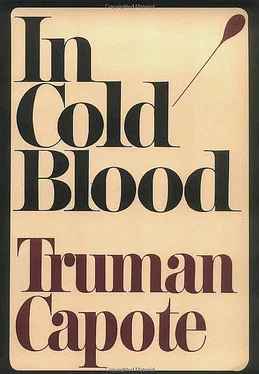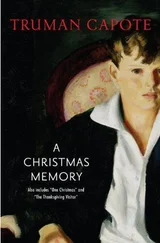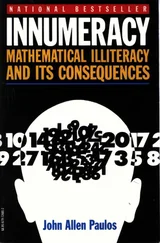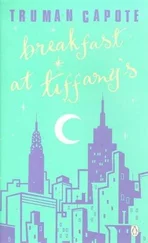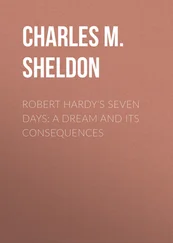Dewey’s own initial contact with foul play in Finney County occurred in 1947. The incident is noted in his files as follows: “John Carlyle Polk, a Creek Indian, 32 years of age, resident Muskogee, Okla., killed Mary Kay Finley, white female, 40 years of age, a waitress residing in Garden City. Polk stabbed her with the jagged neck of a beer bottle in a room in the Copeland Hotel, Garden City, Kansas, 5-9-47.” A cut-and-dried description of an open-and-shut case. Of three other murders Dewey had since investigated, two were equally obvious (a pair of railroad workers robbed and killed an elderly farmer, 11-1-52; a drunken husband beat and kicked his wife to death, 6-17-56), but the third case, as it was once conversationally narrated by Dewey, was not without several original touches: “It all started out at Stevens Park. Where they have a bandstand, and under the bandstand a men’s room. Well, this man named Mooney was walking around the park. He was from North Carolina somewhere, just a stranger passing through town. Anyway, he went to the rest room, and somebody followed him inside—a boy from here abouts, Wilmer Lee Stebbins, twenty years old. Afterward, Wilmer Lee always claimed Mr. Mooney made him an unnatural suggestion. And that was why he robbed Mr. Mooney, and knocked him down, and banged his head on the cement floor, and why, when that didn’t finish him, he stuck Mr. Mooney’s head in a toilet bowl and kept on flushing till he drowned him. Maybe so. But nothing can explain the rest of Wilmer Lee’s behavior. First off, he buried the body a couple of miles northeast of Garden City. Next day he dug it up and put it down fourteen miles the other direction. Well, it went on like that, burying and reburying. Wilmer Lee was like a dog with a bone—he just wouldn’t let Mr. Mooney rest in peace. Finally, he dug one grave too many; somebody saw him.” Prior to the Clutter mystery, the four cases cited were the sum of Dewey’s experience with murder, and measured against the case confronting him, were as squalls preceding a hurricane.
Dewey fitted a key into the front door of the Clutter house. Inside, the house was warm, for the heat had not been turned off, and the shiny-floored rooms, smelling of a lemon-scented polish, seemed only temporarily untenanted; it was as though today were Sunday and the family might at any moment return from church. The heirs, Mrs. English and Mrs. Jarchow, had removed a van load of clothing and furniture, yet the atmosphere of a house still humanly inhabited had not thereby been diminished. In the parlor, a sheet of music, “Comin’ Thro’ the Rye,” stood open on the piano rack. In the hall, a sweat-stained gray Stetson hat—Herb’s—hung on a hat peg. Upstairs in Kenyon’s room, on a shelf above his bed, the lenses of the dead boy’s spectacles gleamed with reflected light.
The detective moved from room to room. He had toured the house many times; indeed, he went out there almost every day, and, in one sense, could be said to find these visits pleasurable, for the place, unlike his own home, or the sheriff’s office, with its hullabaloo, was peaceful. The telephones, their wires still severed, were silent. The great quiet of the prairies surrounded him. He could sit in Herb’s parlor rocking chair, and rock and think. A few of his conclusions were unshakable: he believed that the death of Herb Clutter had been the criminals’ main objective. The motive being a psychopathic hatred, or possibly a combination of hatred and thievery, and he believed that the commission of the murders had been a leisurely labor, with perhaps two or more hours elapsing between the entrance of the killers and their exit. (The coroner, Dr. Robert Fenton, reported an appreciable difference in the body temperatures of the victims, and, on this basis, theorized that the order of execution had been: Mrs. Clutter, Nancy, Kenyon, and Mr. Clutter.) Attendant upon these beliefs was his conviction that the family had known very well the persons who destroyed them.
During this visit Dewey paused at an upstairs window, his attention caught by something seen in the near distance—a scare-crow amid the wheat stubble. The scarecrow wore a man’s hunting-cap and a dress of weather-faded flowered calico. (Surely an old dress of Bonnie Clutter’s?) Wind frolicked the skirt and made the scarecrow sway—made it seem a creature forlornly dancing in the cold December field. And Dewey was somehow reminded of Marie’s dream. One recent morning she had served him a bungled breakfast of sugared eggs and salted coffee, then blamed it all on “a silly dream”—but a dream the power of daylight had not dispersed. “It was so real, Alvin,” she said. “As real as this kitchen. That’s where I was. Here in the kitchen. I was cooking supper, and suddenly Bonnie walked through the door. She was wearing a blue angora sweater, and she looked so sweet and pretty. And I said, ‘Oh, Bonnie… Bonnie, dear … I haven’t seen you since that terrible thing happened.’ But she didn’t answer, only looked at me in that shy way of hers, and I didn’t know how to go on. Under the circumstances. So I said, ‘Honey, come see what I’m making Alvin for his supper. A pot of gumbo. With shrimp and fresh crabs. It’s just about ready. Come on, honey, have a taste.’ But she wouldn’t. She stayed by the door looking at me. And then—I don’t know how to tell you exactly, but she shut her eyes, she began to shake her head, very slowly, and wring her hands, very slowly, and to whimper, or whisper. I couldn’t understand what she was saying. But it broke my heart, I never felt so sorry for anyone, and I hugged her. I said, ‘Please, Bonnie! Oh, don’t, darling, don’t! If ever anyone was prepared to go to God, it was you, Bonnie.’ But I couldn’t comfort her. She shook her head, and wrung her hands, and then I heard what she was saying. She was saying, ‘To be murdered. To be murdered. No. No. There’s nothing worse. Nothing worse than that. Nothing.”
It was midday deep in the Mojave Desert. Perry, sitting on a straw suitcase, was playing a harmonica. Dick was standing at the side of a black-surfaced high-way, Route 66, his eyes fixed upon the immaculate emptiness as though the fervor of his gaze could force motorists to materialize. Few did, and none of those stopped for the hitchhikers. One truck driver, bound for Needles, California, had offered a lift, but Dick had declined. That was not the sort of “setup” he and Perry wanted. They were waiting for some solitary traveler in a decent car and with money in his billfold—a stranger to rob, strangle, discard on the desert.
In the desert, sound often precedes sight. Dick heard the dim vibrations of an oncoming, not yet visible car. Perry heard it, too; he put the harmonica in his pocket, picked up the straw suitcase (this, their only luggage, bulged and sagged with the weight of Perry’s souvenirs, plus three shirts, five pairs of white socks, a box of aspirin, a bottle of tequila, scissors, a safety razor, and a finger-nail file; all their other belongings had either been pawned or been left with the Mexican bartender or been shipped to Las Vegas),and joined Dick at the side of the road. They watched. Now the car appeared, and grew until it became a blue Dodge sedan with a single passenger, a bald, skinny man. Perfect. Dick raised his hand and waved. The Dodge slowed down, and Dick gave the man a sumptuous smile. The car almost, but not quite, came to a stop, and the driver leaned out the window, looking them up and down. The impression they made was evidently alarming (after a fifty-hour bus ride from Mexico City to Barstow, California, and half a day of trekking across the Mojave, both hikers were bearded, stark, dusty figures.) The car leaped forward and sped on. Dick cupped his hands around his mouth and called out, “You’re a lucky bastard!” Then he laughed and hoisted the suit-case to his shoulder. Nothing could get him really angry, because, as he later recalled, he was “too glad to be back in the good ol U.S.A.” Anyway, another man in another car would come along.
Читать дальше
